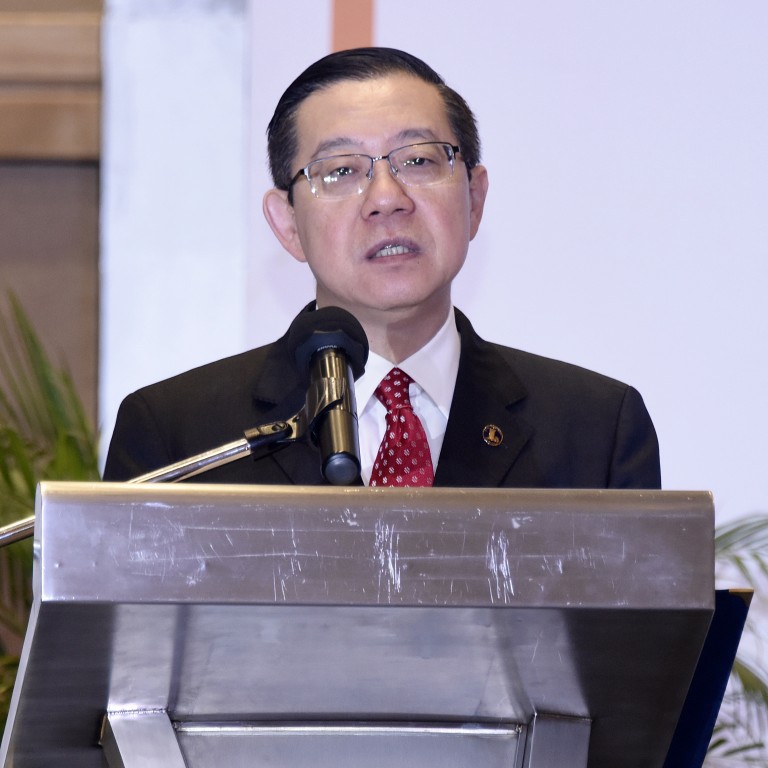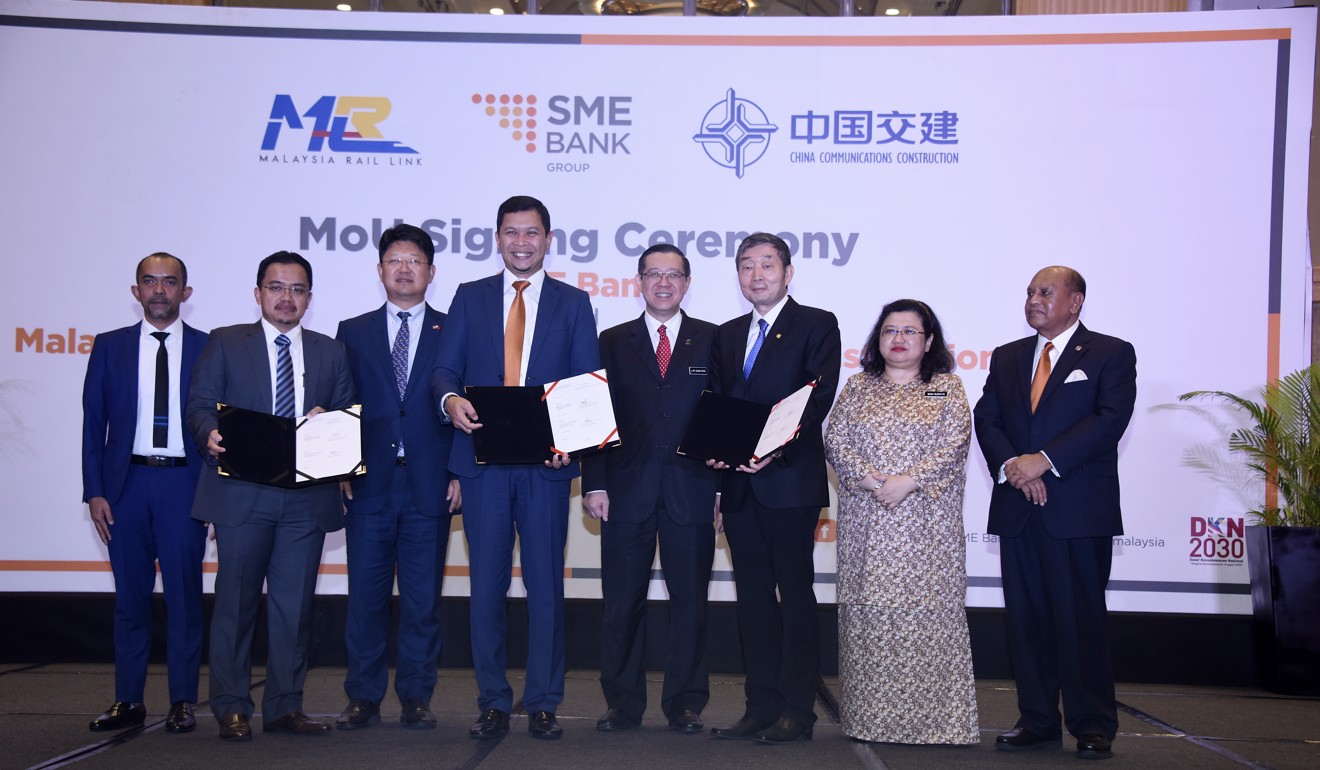
Malaysian contractors on China-backed East Coast Rail Link get better deal after US$240 million in funding agreed
- Malaysia’s ruling coalition last year suspended the project along with other China-backed infrastructure deals, citing exorbitant costs and unfair terms
- The 640km megaproject, which is part of China’s Belt and Road Initiative, was renegotiated to guarantee 40 per cent local participation
The Entrepreneur Development Ministry’s SME Bank will set aside the funds for contract financing, working capital and purchase of equipment, capped at RM50 million for each applicant, said Minister Redzuan Yusof at the signing ceremony between SME Bank, Malaysia Rail Link and China Communications Construction (CCC-ECRL) on Monday.

Describing the project as “an important economic and trade cooperation between Malaysia and China”, CCC-ECRL Managing Director Bai Yinzhan confirmed the project was preparing for full-scale civil works on multiple sites along a 223km stretch along the nation’s east coast, and that “at least” 40 per cent of civil works would be handed to local contractors.
The initial awarding of ECRL civil works packages to Malaysian subcontractors is already underway in stages for tunnels and temporary works along this stretch of the rail project.
After coming to power last year, the Pakatan Harapan coalition suspended the project along with other China-backed infrastructure deals, citing exorbitant costs and unfair terms put forth by the main contractor, China Communications Construction Company.
The rail link, which was intended to bridge the development gap between Peninsular Malaysia’s east and west coasts and bolster economic growth, was later renegotiated and China agreed to slash the price by US$10 billion – a 34 per cent reduction – as well as reduce the length by 40km and increase local participation.
During the signing ceremony, Malaysian Finance Minister Lim Guan Eng – whose ministry wholly owns Malaysia Rail Link, the holding company that owns the project – said the ECRL’s resumption symbolised “the strong bilateral ties between the two countries amid a changing global environment dominated by trade tensions”.
Malaysia to go ahead with China-backed East Coast Rail link
The pre-qualification exercise for local contractors carried out in May had shortlisted 331 local construction companies as potential tenderers, of which 234 were ‘Bumiputera’ companies – the term for ethnic Malays and other indigenous groups who make up about 70 per cent of the population.

So far, contracts worth RM1.68 billion (US$403 million) have been awarded for the project, of a valued RM25 billion (US$6 billion) in civil works.

